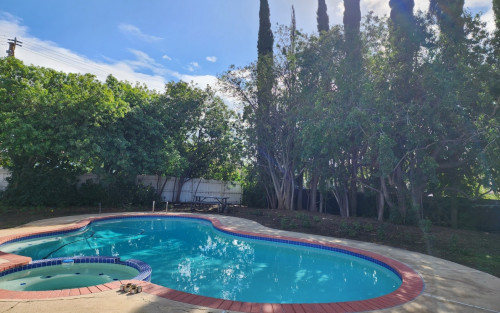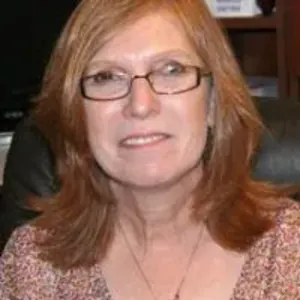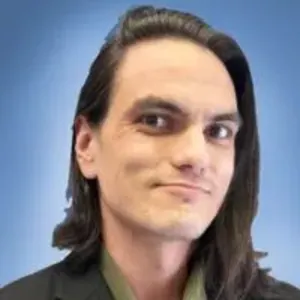






Ventura Recovery Center
Treatment Focus
This center treats substance use disorders and co-occurring mental health conditions. Your treatment plan addresses each condition at once with personalized, compassionate care for comprehensive healing.
Primary Level of Care
Offering intensive care with 24/7 monitoring, residential treatment is typically 30 days and can cover multiple levels of care. Length can range from 14 to 90 days typically.
Claimed
Recovery.com has connected directly with this treatment provider to validate the information in their profile.
Treatment Focus
This center treats substance use disorders and co-occurring mental health conditions. Your treatment plan addresses each condition at once with personalized, compassionate care for comprehensive healing.
Primary Level of Care
Offering intensive care with 24/7 monitoring, residential treatment is typically 30 days and can cover multiple levels of care. Length can range from 14 to 90 days typically.
Provider's Policy
Please contact Ventura Recovery Center to hear more about insurance benefits.
Ventura Recovery Center
Ventura Recovery Center
About Ventura Recovery Center
Ventura Recovery Center is a residential treatment facility located in Thousand Oaks, California. Their mission is to provide comprehensive and compassionate care for individuals struggling with substance use disorders, emphasizing a holistic approach that addresses physical, emotional, and psychological well-being. The center is staffed by a dedicated team of professionals, many of whom are in recovery themselves, fostering a supportive environment where clients are treated like family. This empathetic and experienced team is committed to guiding clients through every phase of their recovery journey.
Benefit from Flexible Therapy Formats
Ventura Recovery Center offers a wide range of services tailored to meet the diverse needs of its clients. These services include medically supervised detoxification, inpatient residential treatment, partial hospitalization programs (PHP), intensive outpatient programs (IOP), and long-term rehabilitation options. They also provide specialized care for individuals with co-occurring mental health disorders through their dual diagnosis program, which integrates psychiatric evaluation, medication management, and various therapeutic modalities such as cognitive behavioral therapy (CBT), dialectical behavior therapy (DBT), and eye movement therapy (EMDR). Additionally, Ventura Recovery Center offers virtual intensive outpatient care, allowing clients to receive individual and group-based therapy from the comfort of their homes.
Join a Supportive Community
Serving adults from across the United States, Ventura Recovery Center is particularly beneficial for those seeking a fresh start away from their usual environments. The serene setting of Thousand Oaks provides an ideal backdrop for healing and self-discovery. The center's comprehensive aftercare program includes alumni support groups, ongoing therapy sessions, and community events to help clients maintain long-term sobriety.
Center Overview
Treatment Focus
This center treats substance use disorders and co-occurring mental health conditions. Your treatment plan addresses each condition at once with personalized, compassionate care for comprehensive healing.
Joint Commission Accredited
The Joint Commission accreditation is a voluntary, objective process that evaluates and accredits healthcare organizations (like treatment centers) based on performance standards designed to improve quality and safety for patients. To be accredited means the treatment center has been found to meet the Commission's standards for quality and safety in patient care.
Insurance Accepted
Cash Pay Rates
Estimated Cash Pay Rate
Center pricing can vary based on program and length of stay. Contact the center for more information. Recovery.com strives for price transparency so you can make an informed decision.
Meet Your Care Team

Bob Pautsch
Executive Director

Michael Baxter
Program Director

Tadd Walker
IOP Director
CATC-I

Katherine Dandley
Registered Marriage and Family Therapist
AMFT, CATC-III

Randy Thompson
Case Manager

Donna Paul
Addiction Treatment Counselor
CATC-III

Shaun Logue
Case Manager
Levels of Care







Your Care Options
Specializations
Drug Addiction
Drug addiction is the excessive and repetitive use of substances, despite harmful consequences to a person's life, health, and relationships.
Alcohol
Using alcohol as a coping mechanism, or drinking excessively throughout the week, signals an alcohol use disorder.
Who We Treat
Men and Women
Men and women attend treatment for addiction in a co-ed setting, going to therapy groups together to share experiences, struggles, and successes.
Approaches
Twelve Step
Incorporating spirituality, community, and responsibility, 12-Step philosophies prioritize the guidance of a Higher Power and a continuation of 12-Step practices.
Evidence-Based
A combination of scientifically rooted therapies and treatments make up evidence-based care, defined by their measured and proven results.
Therapies
1-on-1 Counseling
Patient and therapist meet 1-on-1 to work through difficult emotions and behavioral challenges in a personal, private setting.
Family Therapy
Family therapy addresses group dynamics within a family system, with a focus on improving communication and interrupting unhealthy relationship patterns.
Twelve Step Facilitation
12-Step groups offer a framework for addiction recovery. Members commit to a higher power, recognize their issues, and support each other in the healing process.
Psychoeducation
This method combines treatment with education, teaching patients about different paths toward recovery. This empowers them to make more effective decisions.
Motivational Interviewing and Enhancement Therapy (MET)
This approach is based on idea that motivation to change comes from within. Providers use a conversational framework that may help you commit to recovery.
Art Therapy
Visual art invites patients to examine the emotions within their work, focusing on the process of creativity and its gentle therapeutic power.
Trauma-Specific Therapy
This form of talk therapy addresses any childhood trauma at the root of a patient's current diagnosis.
Conditions We Treat
Post Traumatic Stress Disorder
PTSD is a long-term mental health issue caused by a disturbing event or events. Symptoms include anxiety, dissociation, flashbacks, and intrusive thoughts.
Anxiety
Anxiety is a common mental health condition that can include excessive worry, panic attacks, physical tension, and increased blood pressure.
Depression
Symptoms of depression may include fatigue, a sense of numbness, and loss of interest in activities. This condition can range from mild to severe.
Bipolar
This mental health condition is characterized by extreme mood swings between depression, mania, and remission.
Trauma
Some traumatic events are so disturbing that they cause long-term mental health problems. Those ongoing issues can also be referred to as "trauma."
ADHD, ADD
ADHD is a common mental health condition caused by dopamine imbalance. Common symptoms include inattention, hyperactivitiy, and impulsivity.
Substances We Treat
Cocaine
Cocaine is a stimulant with euphoric effects. Agitation, muscle ticks, psychosis, and heart issues are common symptoms of cocaine abuse.
Prescription Drugs
It's possible to abuse any drug, even prescribed ones. If you crave a medication, or regularly take it more than directed, you may have an addiction.
Benzodiazepines
Benzodiazepines are prescribed to treat anxiety and sleep issues. They are highly habit forming, and their abuse can cause mood changes and poor judgement.
Co-Occurring Disorders
A person with multiple mental health diagnoses, such as addiction and depression, has co-occurring disorders also called dual diagnosis.
Drug Addiction
Drug addiction is the excessive and repetitive use of substances, despite harmful consequences to a person's life, health, and relationships.
Heroin
Heroin is a highly addictive and illegal opioid. It can cause insomnia, collapsed veins, heart issues, and additional mental health issues.
Synthetic Drugs
Synthetic drugs are made in a lab, unlike plant-based drugs like mushrooms. Most synthetic drugs are either stimulants or synthetic cannabinoids.
Methamphetamine
Methamphetamine, or meth, increases energy, agitation, and paranoia. Long-term use can result in severe physical and mental health issues.
Languages
Aftercare
Care Designed for Your Needs
Personal Amenities
Amenities
Activities
Off-Site Activities
Yoga
Yoga is both a physical and spiritual practice. It includes a flow of movement, breathing techniques, and meditation.
Off-Site Amenities
What people are saying
Treatment
4.8
Accommodations
4.7
Food & Nutrition
4.7
Value
4.7
Justin
Reviewed 06/06/22
Review from Rehabs.com
PAG
Reviewed 10/03/16
Review from Rehabs.com
TJK
Reviewed 10/13/16
Review from Rehabs.com
Michelle
Reviewed 10/03/16
Review from Rehabs.com
Michelle
Reviewed 10/03/16
Review from Rehabs.com






